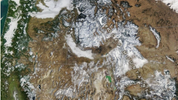Space exploration is important. But can you imagine us sending some type of a rover to another planet and having it accidentally kill any life that may be there? Conversely, it would be a real big "oopsie" by researchers working on interstellar material to unleash something harmful on earth!
Fortunately, there is a set of scientists tasked with protecting both the pristine celestial bodies we are trying to reach, as well as protecting our home planet. Formulating policies for planetary protection issues and keeping them up-to-date is the responsibility of the Committee on Space Research (COSPAR) panel on planetary protection, an international group of experts.
Over the past decades, the organization has developed a Planetary Protection Policy as an international standard to protect against biological and organic contamination and serve as guidance in the implementation of article IX of the United Nations Outer Space Treaty of 1967.
The Planetary Protection Policy has defined five categories, depending on the objective of a specific space mission. These can range from missions to orbit or carry out fly-bys of planets, comets, or icy moons, to those designed to land on these celestial bodies and perhaps carry samples back to Earth, to explore these worlds, analyze their environment or look for signs of extant or extinct life.
An international policy is needed to help prevent the harmful introduction of biological and organic contamination of space missions, and to make sure that future scientific exploration and discoveries do not adversely impact the new worlds they visit. Similarly, protocols should be established for returned alien material to Earth.
https://gizmodo.com/scientists-working-prevent-interplanetary-pollution-1850605740
 unknownx500
unknownx500
















